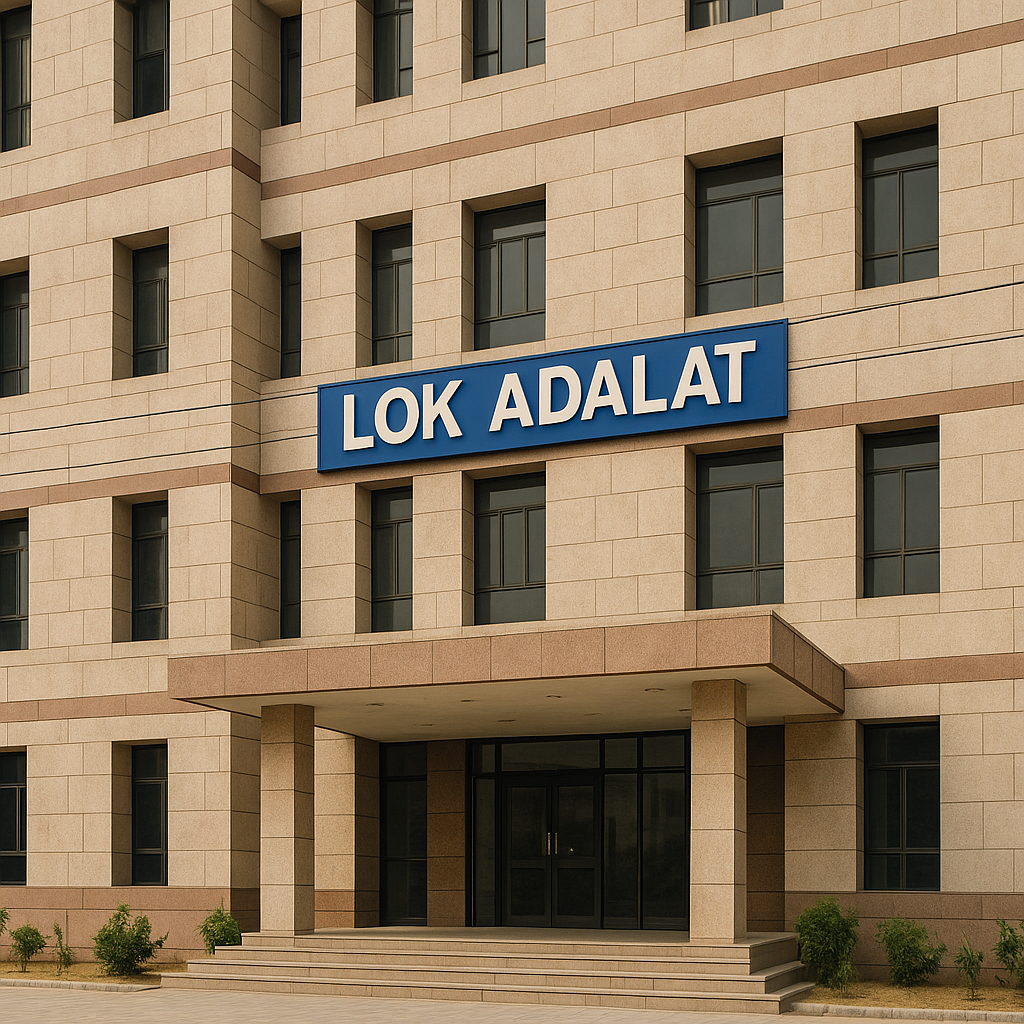Lok Adalats in Delhi are poised for a crucial expansion — and it’s set to make grievance redressal faster, cheaper, and far more accessible for everyday citizens. A new notification has confirmed that disputes related to banking services, NBFCs (Non-Banking Financial Companies), gas supply, and other essential services can now be addressed directly through the Delhi State Legal Services Authority (DSLSA).
Until now, such disputes were often considered non-compoundable or fell into grey zones, making legal resolution time-consuming and expensive. But this move aligns with a broader push to make alternative dispute resolution (ADR) mechanisms more relevant to real-world problems — especially for the urban middle class and vulnerable consumers who may not have the legal means to pursue long-drawn civil cases.
What the Notification Covers — and Why It Matters
The new scope of Lok Adalat hearings includes disputes involving:
| Service Area | Examples of Disputes Covered |
|---|---|
| Banking Services | Unauthorised charges, faulty deductions, loan defaults, ATM fraud, credit card billing errors |
| NBFC (Non-Banking Finance) | EMI disputes, loan restructuring disagreements, aggressive recovery practices |
| Gas Supply and Utilities | Delayed connections, overcharging, faulty billing, low pressure complaints |
| Other Essential Services | Complaints related to internet, electricity, water, mobile services, DTH |
This expansion follows the National Legal Services Authority (NALSA)’s national directive to empower State Legal Services Authorities (SLSAs) with greater jurisdiction and flexibility to hear civil, criminal compoundable, and service-sector matters. The aim is clear: to decongest traditional courts and offer quicker, amicable solutions for everyday issues.
Why This Move Is Being Welcomed Across the Board
According to retired legal experts and DSLSA officials, this move could reduce pendency and provide confidence to consumers who often feel helpless when dealing with large institutions.
“People have often dropped complaints against banks or gas agencies simply because litigation is expensive and intimidating,” says a former District Judge now advising a legal aid NGO. “This change gives power back to the citizen.”
It’s also a step forward in democratizing justice — making access available to those who may not otherwise afford expensive legal counsel.
How You Can File a Case in Lok Adalat
If you have a grievance against a bank, NBFC, or utility provider, here’s how to initiate the Lok Adalat route:
- Submit an application to the DSLSA office or district legal services center.
- Attach basic proof: bills, SMS records, complaint letters, or transaction slips.
- Attend the pre-Lok Adalat counseling session.
- If both parties consent, your matter will be scheduled for amicable settlement during the next Lok Adalat hearing.
These processes are free of cost, with no lawyer required in many cases. Importantly, the final decision is binding on both parties, just like a civil court decree.
Timeline and Institutional Readiness
The DSLSA will begin hearing such cases from the next Lok Adalat sitting, with staff and volunteers trained to handle these expanded categories. Information kiosks and online filing options are also being considered.
Meanwhile, financial institutions and gas agencies have been instructed to depute representatives to appear during the sessions and resolve complaints on the spot.
What This Means for Delhiites
This change has both immediate and long-term implications:
- Faster redressal: Instead of waiting months for replies from helplines or regulators, people can now expect resolution in a single day.
- Empowerment of citizens: From senior citizens harassed by EMI calls to homemakers overcharged on gas bills, the doors of justice are now wider open.
- Reduced legal burden: Courts can focus on major civil and criminal cases without being clogged by low-value, high-frequency consumer complaints.
It’s a real-world policy shift with potential to create a grassroots legal safety net for the urban population.
FAQs
What kinds of cases can now be resolved through Delhi Lok Adalats?
You can now resolve complaints related to banking services, NBFCs (like EMI or loan issues), gas supply problems, and other essential service disputes through Lok Adalats in Delhi.
Are Lok Adalat decisions legally binding?
Yes, decisions made in Lok Adalats are final and legally binding on both parties, similar to a civil court decree.
Is there a fee to file a complaint in Lok Adalat?
No. Lok Adalat proceedings are completely free of cost. You don’t need to pay court fees or hire a lawyer in most cases.
How can I file a complaint against a bank or utility service?
You can file a case by submitting a simple application with supporting documents to the Delhi State Legal Services Authority (DSLSA) or your local district legal office.
When will the new rules take effect?
The updated categories will be admitted starting from the next Lok Adalat hearing session as per DSLSA’s schedule.
Can I file a case if I have already approached the bank’s customer care?
Yes, Lok Adalats are open to unresolved complaints, even if you’ve already tried customer support or email resolution without success.
What if the other party doesn’t attend the Lok Adalat?
Both parties must consent to Lok Adalat proceedings. If one party doesn’t appear, the matter may not proceed unless resolved through counseling or rescheduled.

